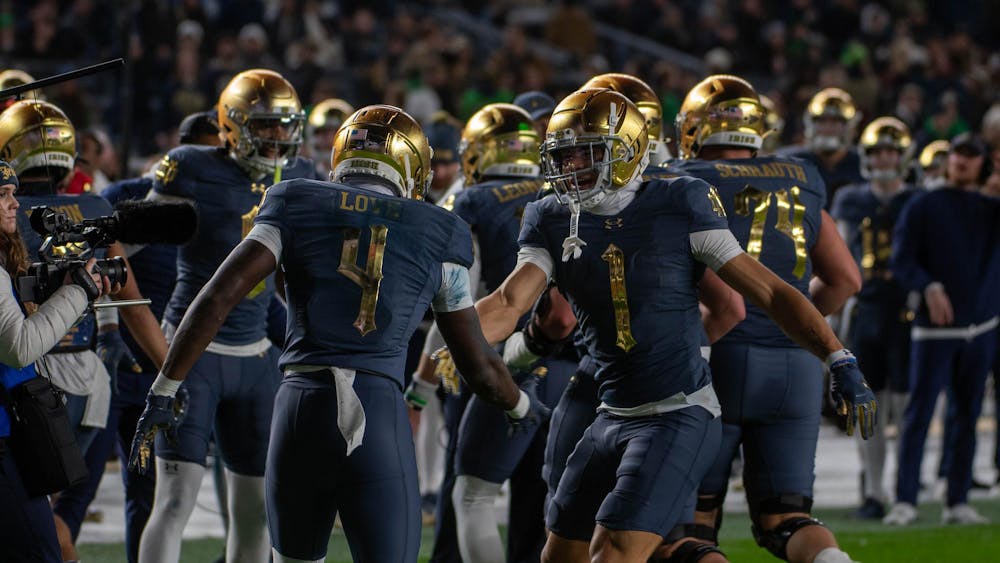English soccer in 1996 was anything but “The Beautiful Game.”
Many of the best players were visibly unfit; many were known to drink the day before games and pay no attention to their diet; tactics that weren’t a bland take on the classic English 4-4-2 formation were universally rejected and players who weren’t British or Irish were still fairly rare.
Alex Ferguson’s Manchester United aside, no team was close to the top of Europe, and even Ferguson’s team was clearly a step behind true powerhouses like AC Milan of Italy or Ajax of the Netherlands.
All of that began change in October of 1996.
Arsenal had been one of the top teams in England but struggled to replace two-time league-winning manager George Graham, finishing in the bottom half of the Premier League under Bruce Rioch. So they tried something new.
They hired Arsene Wenger.
Wenger wasn’t the first manager from outside of Britain or Ireland in the Premier League, but he embodied the spirit of the rest of Europe more than any prior appointment. Unlike Tottenham’s Ossie Ardilles, Chelsea’s Ruud Gullit or most English managers in the game at the time, Wenger wasn't a particularly famous player before entering management. In fact, despite a fairly successful spell with Monaco, he was almost completely unknown to English fans who paid little attention to the remainder of the soccer world. All they knew was that his last job had been in Japan, a complete non-entity in global soccer. That was enough to dismiss him.
Even worse, Wenger didn’t have the personality of England’s top managers. He was more quiet, reserved and intelligent. His master’s degree in economics and ability to speak six languages earned him the nickname “Le Professeur.” And he believed that building a good team was about more than picking players and yelling at them. He brought in previously-foreign concepts of nutrition to English soccer, telling his players to cut out the beers and pork pies in favor of healthier options. In terms of tactics, he believed in patience. Maybe delivering dangerously hard tackles when without the ball and kicking it as far up the field as possible when you have it wasn’t always the best solution.
The players Wenger brought in didn’t help his reputation early on either. Instead of established English lads who fans had seen before, Wenger looked to his home nation of France to bring in players like midfielder Patrick Vieira.
Yet, just two years later, Wenger had proven that English soccer needed a revolution. His Arsenal team broke the dominance of Manchester United by winning the rare “double” of the Premier League and FA Cup in 1998.
Wenger’s nutritional revolution had allowed an aging defense that grinded out wins in the late ’80s and early ’90s to keep playing at an elite level into their late 30s. His tactics allowed star Dutch forward Dennis Bergkamp, signed under Rioch, to thrive. His own signings, such as Vieira, played a pivotal role, too. That summer, when France won the World Cup with a team that drew heavily from Wenger’s Arsenal team and players he had given debuts to at Monaco, Wenger’s genius became even clearer.
And pretty soon, England adapted. The next year, Ferguson upped his game, picking up on some of Wenger’s tactical advances and led Manchester United to a Champions League title. The pair engaged in one of the greatest managerial rivalries in soccer history through the early 2000s, as Arsenal won two more titles behind the goals of Thierry Henry — a talented winger Wenger converted into a legendary pure striker. The second of those titles was one of the greatest achievements in soccer, as Arsenal completed the 2003-04 season without a single defeat.
Maybe you know this. Wenger’s status as a soccer legend is undeniable to most fans of the sport. But for many who started paying attention to the sport in recent years, it can be easy to forget. For more than a decade, Wenger has provided over an always-good but rarely-great Arsenal team, who couldn’t seem to win another league title. “Wenger Out” became a popular catchphrase for Arsenal fans believing they needed a change.
Over a week ago, Wenger announced he would retire when the season ended. Maybe Arsenal will appoint the right replacement who will inject a new life into the team and have them competing for the Premier League again. But no matter what happens, you can’t take away Wenger’s impact on the game.
Read More
Trending









